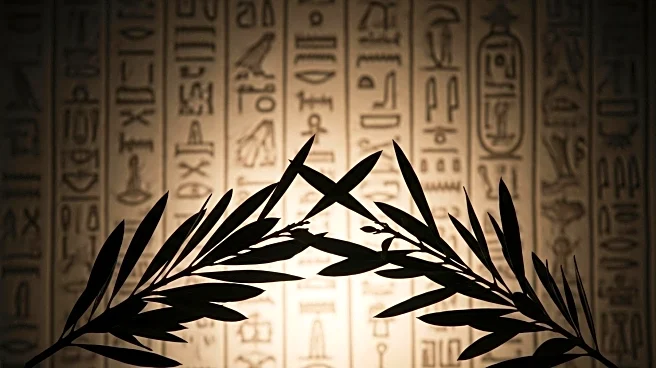What's Happening?
Talks on a US-backed Gaza ceasefire plan have resumed in Egypt, involving Israeli and Hamas delegations meeting with mediators. While early agreements have been reached, significant issues such as withdrawal timelines and hostage releases remain unresolved. Senior US officials, including President Trump's son-in-law Jared Kushner, are set to join the discussions. Despite efforts, the prospects of a lasting ceasefire remain uncertain due to ongoing disagreements and previous failed attempts at ceasefires. Egyptian media reports an optimistic tone, while Qatari officials express caution, highlighting unresolved technical details in the proposal.
Why It's Important?
The outcome of these talks could significantly impact the geopolitical landscape in the Middle East. A successful ceasefire would not only bring relief to the war-torn Gaza Strip but also potentially stabilize the region. The involvement of senior US officials underscores the importance of American diplomatic efforts in the Middle East. However, the unresolved issues and previous failures highlight the complexity of achieving lasting peace. The stakes are high for both Israel and Hamas, as well as for regional players like Qatar and Egypt, who are invested in the peace process.
What's Next?
The negotiations are expected to continue, with US envoys likely to increase pressure on both parties to reach an agreement. If no progress is made, American officials may present a final compromise proposal. The timeline for these talks remains unclear, but the looming threat of renewed military action adds urgency to the discussions. Israeli officials have allocated only a few days for the current negotiations, indicating a limited window for achieving a breakthrough.










